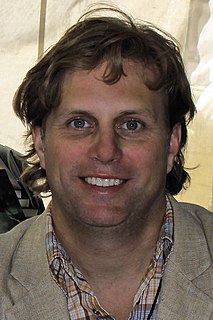A Quote by Stanislav Grof
This is an extraordinary book of unique psychological power. It reveals not only scholarship and sophistication of the author, but deep and intimate knowledge of the recesses of the human psyche. By masterful juxtaposition of evocative images, poetry, and selected quotes from scholars, Flesh and Blood seems to engage both the right and left hemispheres in an unprecedented dialogue. The result is a multi-dimensional, almost holographic picture of the primordial foundations of the human mind.
Quote Topics
Almost
Author
Blood
Book
Both
Deep
Dialogue
Engage
Evocative
Extraordinary
Flesh
Flesh And Blood
Foundations
Human
Human Mind
Human Psyche
Images
Intimate
Juxtaposition
Knowledge
Left
Mind
Multi-Dimensional
Only
Picture
Poetry
Power
Primordial
Psyche
Psychological
Quotes
Result
Reveals
Right
Scholars
Scholarship
Seems
Selected
Sophistication
Unique
Unprecedented
Related Quotes
LSD is a unique and powerful tool for the exploration of the human mind and human nature. Psychedelic experiences mediate access to deep realms of the psyche that have not yet been discovered and acknowledged by mainstream psychology and psychiatry. They also reveal new possibilities and mechanisms of therapeutic change and personality transformation.
I had all the characteristics of a human being—flesh, blood, skin, hair—but my depersonalization was so intense, had gone so deep, that my normal ability to feel compassion had been eradicated, the victim of a slow, purposeful erasure. I was simply imitating reality, a rough resemblance of a human being, with only a dim corner of my mind functioning
There is a thinking in primordial images, in symbols which are older than the historical man, which are inborn in him from the earliest times, eternally living, outlasting all generations, still make up the groundwork of the human psyche. It is only possible to live the fullest life when we are in harmony with these symbols; wisdom is a return to them.
Chess is a unique battlefield for human minds and computers - human intuition, our creativity, fantasy, our logic, versus the brute force of calculation and a very small portion of accumulated knowledge infused by other human beings. So in chess we can compare these two incompatible things and probably make projections into our future. Is there danger that the human mind will be overshadowed by the power of computers, or we can still survive?
It is worthwhile adding that the power of the poem to teach not only sensibilities and the subtle movements of the spirit but knowledge, real lasting felt knowledge, is going mostly unnoticed among our scholars. The body of knowledge locked into and releasable from poetry can replace practically any university in the Republic. First things first, then: the primal importance of a poem is what it can add to the individual mind.Poetry is the voice of a poet at its birth, and the voice of a people in its ultimate fulfillment as a successful and useful work of art.
Every type of destruction that human philosophy, human science, human reason, human art, human cunning, human force, and human brutality could bring to bear against this Book, and yet the Bible stands absolutely unshaken today. At times almost all the wise and great of the earth have been pitted against the Bible, and only an obscure few for it. Yet it has stood.
Like Richard Ellmann on James Joyce, Arnold Rampersad on Ralph Ellison is in a class of its own. His masterful and magisterial book is the most powerful and profound treatment of Ellison's undeniable artistic genius, deep personal flaws, and controversial political evolution. And he reveals an Ellison unbeknownst to all of us. From now on, all serious scholarship on Ellison must begin with Rampersad's instant and inimitable classic in literary biography.
Something in the human psyche confuses beauty with the right to be loved. The briefest glance at human folly reveals that good looks and worthiness operate independently. Yet countless socializing forces, from Aunt Clara to the latest perfume ad, reinforce beliefs like 'If I were pretty enough, I would be loved.'
With Salvage the Bones, Jesmyn Ward has written the best sort of novel-a beautiful, important book that's both unflinching and tender, heartbreaking and triumphant. A lyrical and riveting testament to the strength of the human spirit, as well as the power of family and community. Ward's paragraphs are like songs, lifting us even as the authenticity of this world and these characters keeps the ground in clear sight. This is an extraordinary book by an extraordinary writer.
I feel closer ties and more intimate bonds with certain characters in books, with certain images I’ve seen in engravings, than with many supposedly real people with the metaphysical absurdity known as ‘flesh and blood’. In fact, ‘flesh and blood’ describes them very well: they resemble cuts of meat laid out on the butcher’s marble slab, dead creatures bleeding as though still alive.




































